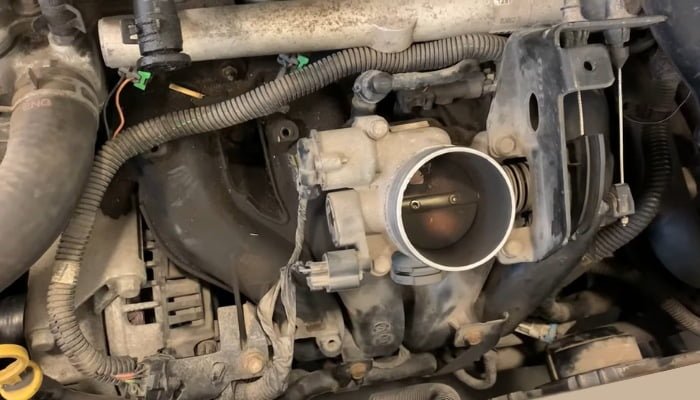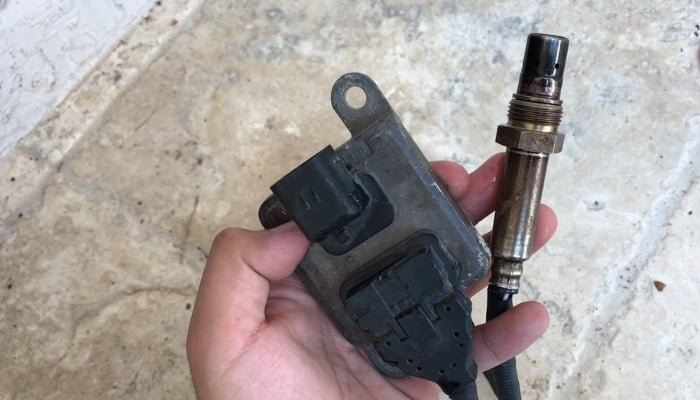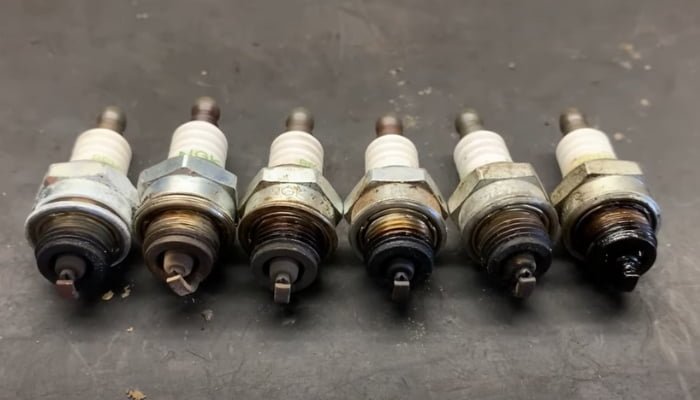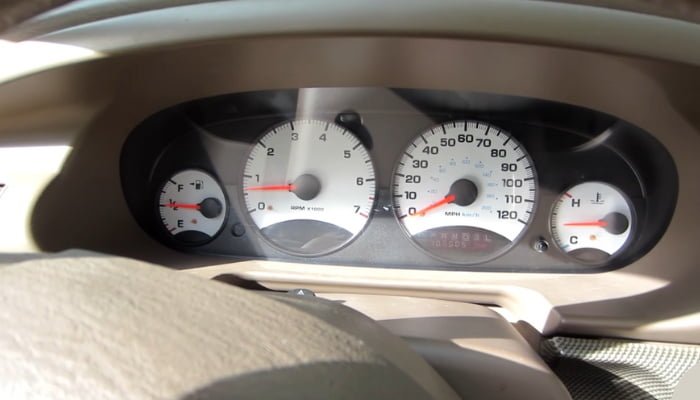No matter how much you enjoy driving fast, you will eventually slow down and stop at the red signal from your local traffic light.
Unfortunately, this is the point where a car idling low and cutting off becomes frustrating.
Imagine having several vehicles behind you with their horns blasting loudly, asking you to get off the road when the light shows green.
This can be so embarrassing. That’s why you should find out the causes of the problem and the solution below.
Causes of Car Idling Low and Cutting Off
There are several reasons why a car may idle low and be cut off without notice. However, the factors responsible can be linked to insufficient power, air, or fuel supply.
Nevertheless, these are a few direct reasons.

Faulty or clogged air control system
A car’s air control system is designed to regulate air inflow into the engine to aid combustion. The intake and exhaust valves play a vital role in the engine’s proper functioning.
When the valves become clogged with excess carbon, it may prevent the flow of sufficient air into the car’s combustion chamber. This can make the engine shut off without any notice.

Defective O2 sensor
Several sensors are fitted into a car to send signals to the onboard computer system, which helps to regulate the various systems in a car.
Among other sensors, the O2 sensor is designed to monitor the quality and amount of air needed to burn the fuel in the combustion chamber.
The sensor determines the amount of air the engine needs and sends a signal to the onboard computer system, which regulates the flow.
If the sensor is defective, it is likely to send a wrong signal to the onboard computer system, leading to inappropriate air/fuel mixture proportion.
A lean fuel mixture will most likely cause the engine to cut off unexpectedly.

Worn-out or defective spark plugs
Spark plugs send electric signals from a vehicle’s ignition to the engine, which triggers the combustion process.
In that case, a weak electrical wave can hinder the flow of current and alter the engine’s proper functioning.
If your car’s spark plugs are worn out or defective, you will usually experience stalling until the engine eventually cuts off.

Car Idling Low and Cutting Off: How to Fix Problem
Fixing the problems outlined in the preceding section is straightforward.
Once you are sure that the problem is due to a defective or clogged air control system (intake and exhaust valves), faulty O2 sensor, or bad spark plugs, kindly do the following:
- Soak the air control valves in fuel and blow compressed air into them to eliminate excess carbon.
- Replace the faulty Oxygen sensor.
- Replace the worn-out spark plugs.
FAQs
Can bad gas cause stalling?
Driving with bad gas in your car’s fuel tank can cause stalling, among other factors. Gasoline is refined with all ingredients in their appropriate proportions.
Therefore, diluted gas means an alteration of the proportion of the gasoline ingredients.
So, using diluted gas or any other gasoline with bad quality may not contain combustible ingredients. In that case, the gasoline will affect the proper functioning of the car’s combustion process and result in stalling.
Gasoline is the lifeblood of a vehicle. Therefore, any contamination or alteration in the prescribed quality of the gas can affect the vehicle’s engine and cause severe damage.
Can a weak battery cause stalling?
Of course, a weak battery can cause stalling in a vehicle. A vehicle’s battery and the alternator work in synergy to provide electrical power. Any slight malfunction in the battery will automatically increase the workload on the alternator.
So, a car with a weak battery will most likely cause the alternator to work harder in supplying electrical power. The workload subjects the alternator to more stress when this happens, causing the engine to stall at intervals.
If you have a weak battery in your car, it would be best to recharge the battery or replace it as soon as possible. Otherwise, you may experience consistent stalling over time.
Why does my car idle low and shut off?
The fundamental reason why your car idles and shuts off is due to lack of sufficient power, air, or fuel. If any of the components that help to generate or supply the required amount of power, air, or fuel malfunction, your car will most likely stall and eventually shut off.
In other words, the following defections can make a car shut off after idling low for some time: faulty mass airflow, faulty or weak battery, clogged EGR valve, etc.
Whatever alters the power, air, and fuel supply efficiency will eventually affect a vehicle’s engine and cause it to shut off unexpectedly. Hence, you must pay attention to these three aspects of your car to overcome this challenge.
Why is my car cutting off when I stop?
A faulty or lean fuel mixture and a defective throttle body are culprits to a car’s engine cutting off. When your car’s oxygen sensor or air mass flow sensor becomes faulty, the sensors will send incorrect information to the computer system.
Meanwhile, a car’s onboard computer system relies on the O2 sensor and the air max flow sensor to ascertain the amount of oxygen in the exhaust, as well as the amount of air that is entering the engine.
In that case, a wrong signal from the faulty sensors will result in the supply of insufficient fuel below the air/fuel mixture standard. As a result, you will experience stalling until your car’s engine cuts off in this situation.
Why is my car stalling at low RPM?
There are several reasons why your car keeps stalling at low rpm. Some of the reasons include; lack of fuel, clogged fuel filter, defective fuel pump, bad alternator, defective coolant sensor, vacuum leak, etc.
The factors that are likely to cause a car to stall consistently are pretty much. While some are minor issues that you can rectify cheaply, others can be costly to fix.
So, it is advisable to call on a professional mechanic to diagnose the faulty component that is responsible for your car’s stalling.
After that, you will determine whether it is a minor or a major challenge. However, regular maintenance can help you prevent your car from stalling unexpectedly.
Final Thoughts
Car idling and cutting off is a common problem once a car’s O2 sensor, spark plugs, air control system, fuel system, etc., start developing faults.
You’ve just learned about the problems and how to deal with the challenge from this article.
If you are a DIYer, fixing the problem can be pretty easy.
However, non-DIYers can contact an expert auto mechanic to diagnose the problem and fix it instead.
Note that some repairs may be relatively more expensive than others to enable you to budget for the repair appropriately.



